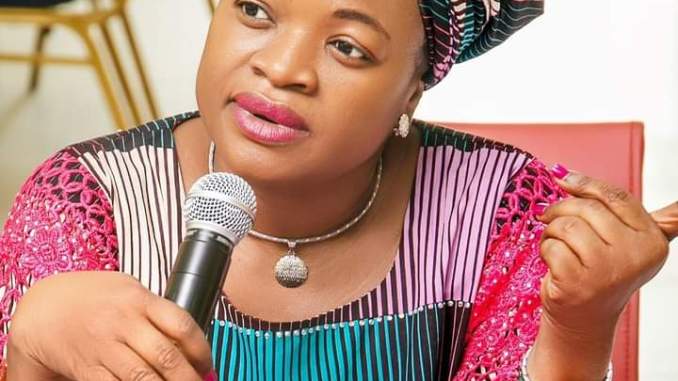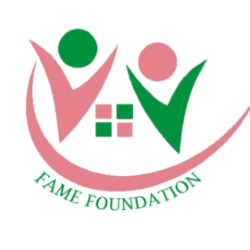

A Not-Profitable Organisation set up to formulate programmes through several initiatives to mentor, empower and advocate for women and girls.
FAME foundation was established to solicit, encourage and advance the social, emotional and economic wellbeing of women and girls as well as formulate programmes within the framework of national development plan with a view to enhancing the participation of women and advocate for gender parity in the society. FAME foundation firmly believe that the entire nation, businesses, communities and groups can benefit from the implementation of programs and policies that adopt the notion of women empowerment.
To reduce the impacts of increasing insecurity, violence and injustices against women, the 15 members United Nations Security Council on October 31 2000 adopted a document that sought to afford women more opportunities to participate in peace processes and political institutions.
Governments of countries across the globe were expected to develop their National Action Plan (NAP) to domesticate the document regarded as the first formal and legal pronouncement by the Security Council that required parties in a conflict to prevent violations of women’s right, support their participation in peace negotiations and in post-conflict reconstruction, protect women and girls from wartime sexual violence.
Nigeria launched its revised version in August 2013 when then minister of women affairs and social development, Aisha Al-Hassan, affirmed that the renewed NAP would address challenges like violent extremism that the first NAP did not take note of.
She also called for the recognition of the pivotal role of women in conflict management, conflict resolution and sustainable peace.
However, 20 years after the official UNSCR was launched and seven years after Nigeria joined the league of countries that have domesticated the tenets of the resolutions, stakeholders in women’s rights advocacy are of opinions that the actions of government leaves much to be desired in terms of implementation.
At various fora where they access the level of work done and the knowledge gap of the resolutions and its impacts among women in Nigeria, many bemoaned the lukewarm attitude of the government at various levels.
At the forefront for the fight for more space for women to have their voices heard on how to build a peaceful, just and egalitarian Nigeria is the West Africa Network for Peace building (WANEP), an affiliate of its parent body organisations with structural presence in all ECOWAS countries.
Stakeholders to the rescue
The national network coordinator of WANEP Nigeria, Mrs Bridget Osakwe expressed optimism that despite the snail pace of progress in the country, all hope is not lost as it continues through various means and avenue to press for robust actions towards ensuring that Nigerian governments implement the desired NAPs.
At a recent three-days virtual conference/training workshop in collaboration with the Global Network of Women Peace Builders (GNWP) and support from the Global Affairs Canada, Peace and Stabilisation Operations Programme (PSOPs), experts from within and outside Nigeria fashioned out communication strategies to draw government’s attention, drive and promote the full localisation of the women, peace and security resolution in Nigeria.
Tagged ‘Gender-Based Analysis Plus (GBP+) and Crisis and Risk Communication Strategy Workshop to Promote the Implementation of the Women, Peace and Security Resolutions in Nigeria’, participants said it served as a wake-up call to seek equal space for women to join the vanguard for peace in order to promote long term peace and stability, strengthen their participation in peace building/crisis management and to support women-led responses to humanitarian emergencies such as the Covid-19 pandemic.
Bridget explained that, “This project is designed to offer participants a sustained approach to the implementation of the women, peace and security (WPS) policies that fully integrates capacity-building on gender-responsive conflict and crisis analysis among local and national stakeholders.”


Participants who were drawn from the academic, media and civil society organizations affirmed that the training broadened the knowledge of key state and non-key state actors involved in development planning across Nigeria.
In her remarks, Bridget Osakwe said, “Globally, women have been identified as vulnerable in the face of myriads of violence that pervade the world. In spite of their vulnerability, women’s voices have been subjugated and undervalued while lending their voices to peace and security discourse.”
According to her, “The continued exclusion of women in peace processes especially in decision-making had global concerns on the need to enhance their capacities and address the effects of violence on them.”
She lamented that, “Two decades after the adoption of UNSC Resolution 1325 at the global level and seven years after Nigeria’s adoption of the National Action Plan (NAP) on UNSCR 1325, progress in implementation has been minimal. In spite of the central roles played by women, including young women, in preventing and resolving conflicts, responding to crises and building sustainable peace, policy development and peace building processes continue exclude them.
Don added her voice
A gender equality activist and professor at the University of Maiduguri, Patricia Donli in her paper reiterated the need for stakeholders to understand the place of inter-sectionality in peace building mechanism.
“Any interventions to address gender roles and stereotypes cannot occur without an understanding that although all women are in some ways subject to gender discrimination.”
She said further that, “All women are not discriminated against in the same way while particular groups of women with different economic, social, political and cultural status may face multiple forms of discrimination.”
Professor Donli, who oversees the Gender Equality, Peace and Development Centre (GEPaDC) Maiduguri, noted that intersectional discrimination has been recognised as a serious obstacle to the achievement of gender equality.
She explained that inter-sectionality is the acknowledgement that everyone has their own unique experiences of discrimination and oppression and everything and anything that can marginalize people must be considered whether gender, race, class, sexual orientation, physical ability.
“Peacebuilding is not just limited to war but also encompasses all activities that intentionally try to resolve conflict and bring about a deeper and more sustainable level of peace. It refers to the whole process of building peace before, during and after outbreaks of violence,” she told participants.
She further explained that the peace-building field is one that values human life, actively promoting the well-being of humankind on an individual basis and as a whole, regardless of one’s race, ethnicity, religion, sex, background or any affiliation.”
In her opinion, “In the design of communication messages, key and non-key state actors in peace-building must note that factors including race, ethnicity, caste, class, age, religion, sexual orientation, marital status, geographic location, disability, HIV status or status as a migrant, refugee or internally displaced person can all influence the forms and nature of violence women and girls may suffer.
“These factors can have direct discrimination and as well as create inequalities that are unique to particular groups of women or that disproportionately affect some groups of women. A sound understanding of the multiple forms of discrimination faced by different groups of women in different contexts needs to be embedded in all interventions. Without an intersectional lens, efforts to tackle inequalities and injustice towards women are likely to just end up perpetuating systems of inequalities.”
She said “An intersectional approach allows for recognition of the value women play at the ‘informal’ level and more importantly bring these mechanisms into the broader peace and negotiation process. It would allow us to critically analyse barriers, challenges and social norms that prevent the meaningful participation of women.”
She said the system also often excludes the most marginalized displaced women, migrant domestic workers, women working in the informal economy, rural women and indigenous women, women living with disability – which in turn keeps their issues, their struggles and their solutions out of the discussion.
“This exclusion of large groups of women on the ‘margins’, who are not seen as ‘qualified’ to engage in peace and security issues is a weakness of the current system because it means that its instruments and processes only capture the experience of women who have access to power and/or resources. This lack of diversity has meant that the narrative or ’story’ of women, peace and security is only partially told.”
Other experts too,
Also speaking, a communication expert and chief executive officer of Women Radio 91.7, Toun Okewale Sonaiya, said there is no gain saying the fact that effective communication through the mass media plays a key role in the successes of any activity in promoting gender equality and women emancipation and their empowerment in the country.
She noted that, “A crisis may happen without warning or little notice; its managers must learn how best to communicate and advocate locally and nationally during a crisis.”
According to Toun, identifying key stakeholders and who to involve, what kind of messages, when to disseminate such messages, where to focus on, why such messages should be related and how to make them public are imperative for effective communication strategies.
Majority of speakers agreed that there is no better time for the government to listen to counsel of women than now that Nigeria is plague with wanton destruction of lives and properties by bandits, kidnappers and insurgents in different parts of the country.
Experts from the Canadian based Global Network of Women Peace Builders (GNWP) took participants through a gender-based analysis+ (GBA+) that they affirmed prepared them for the task of changing the plight of women in peace building processes and their contributions to national development.
Source: https://www.blueprint.ng/women-towards-advocating-for-more-voice-in-nigeria/
Plot 253, off Defense Quarters, Garki Area 1, Durumi 1, Abuja.
Landmark: The Apostolic Church, Area 1. Federal Capital Territory.
Tel: +2349070051404
Email: info@famefoundationwg.org
